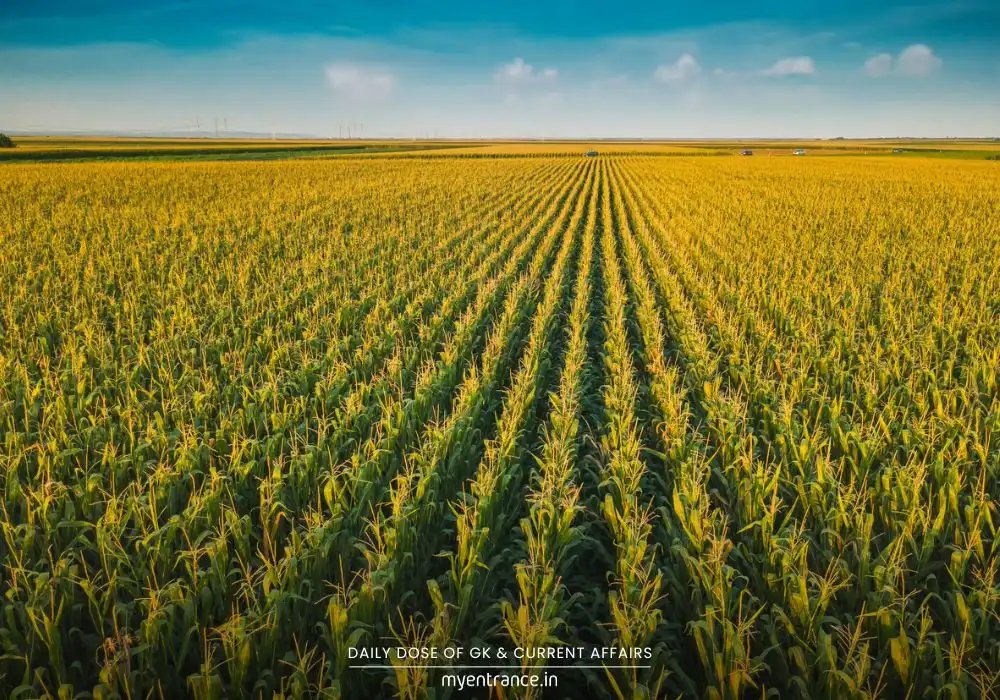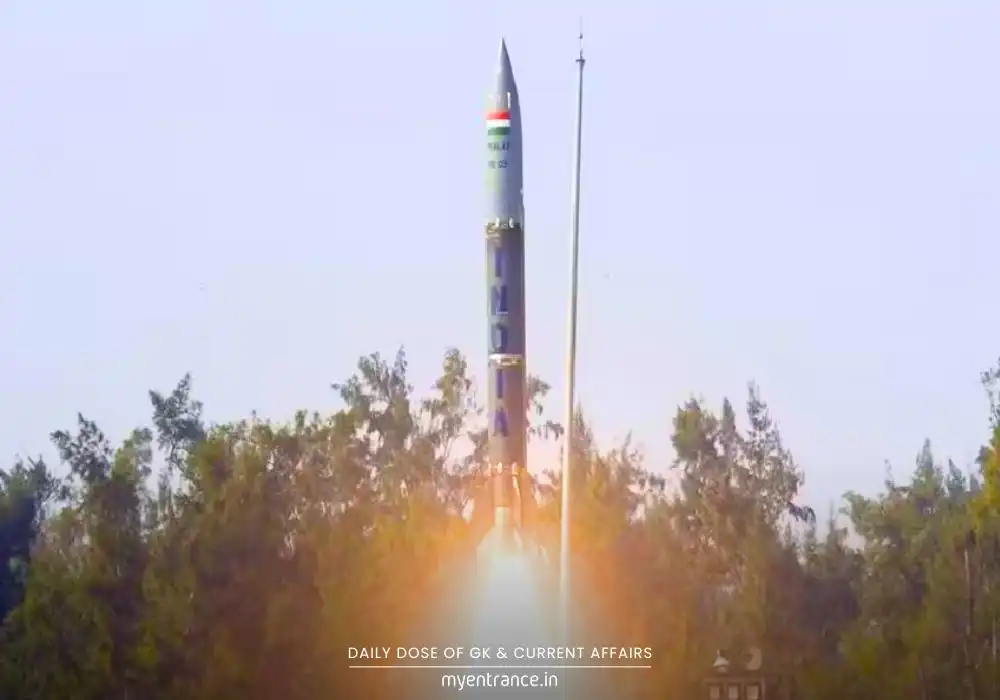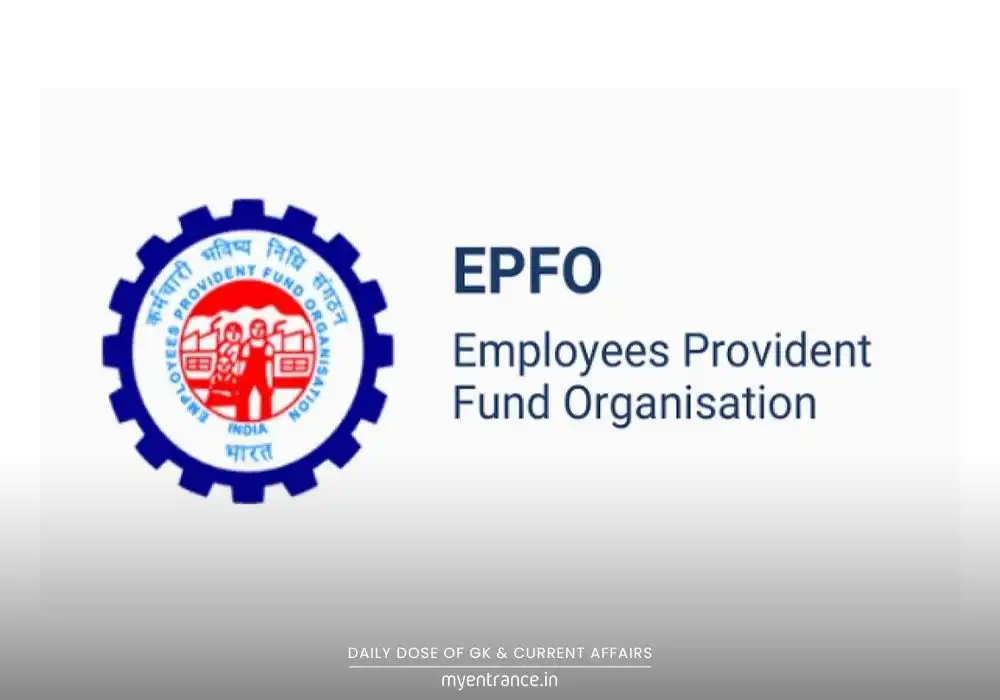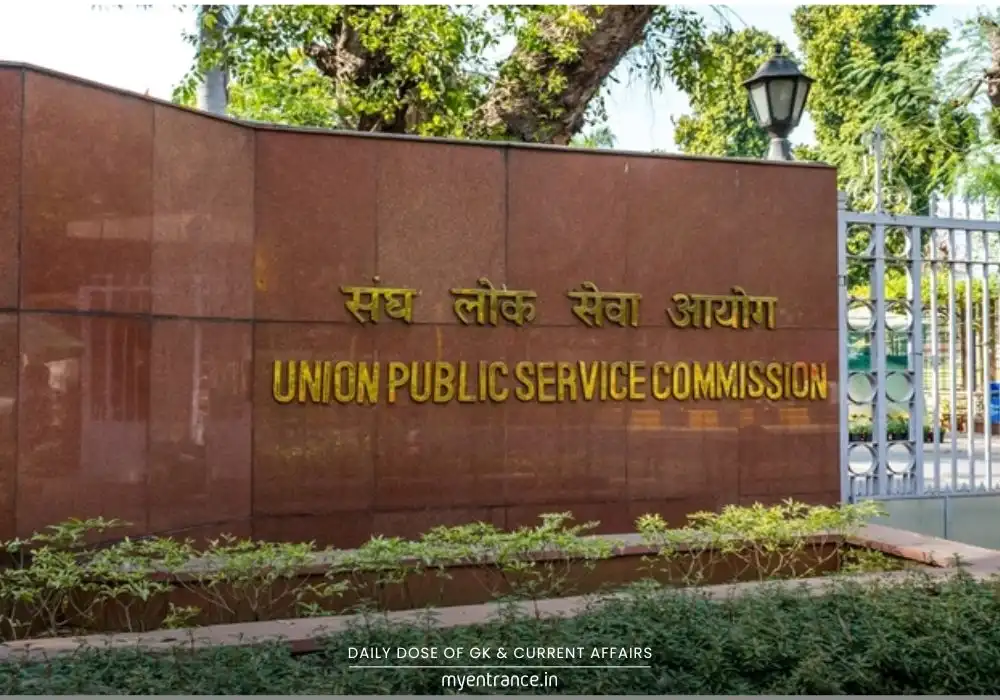Select Language
US Supreme Court Shakeup: How Trump’s Citizenship Order Affects Globally
Master complex global events through easy preparation modules – discover why myentrance.in is the best site to learn online with exam-focused analysis.
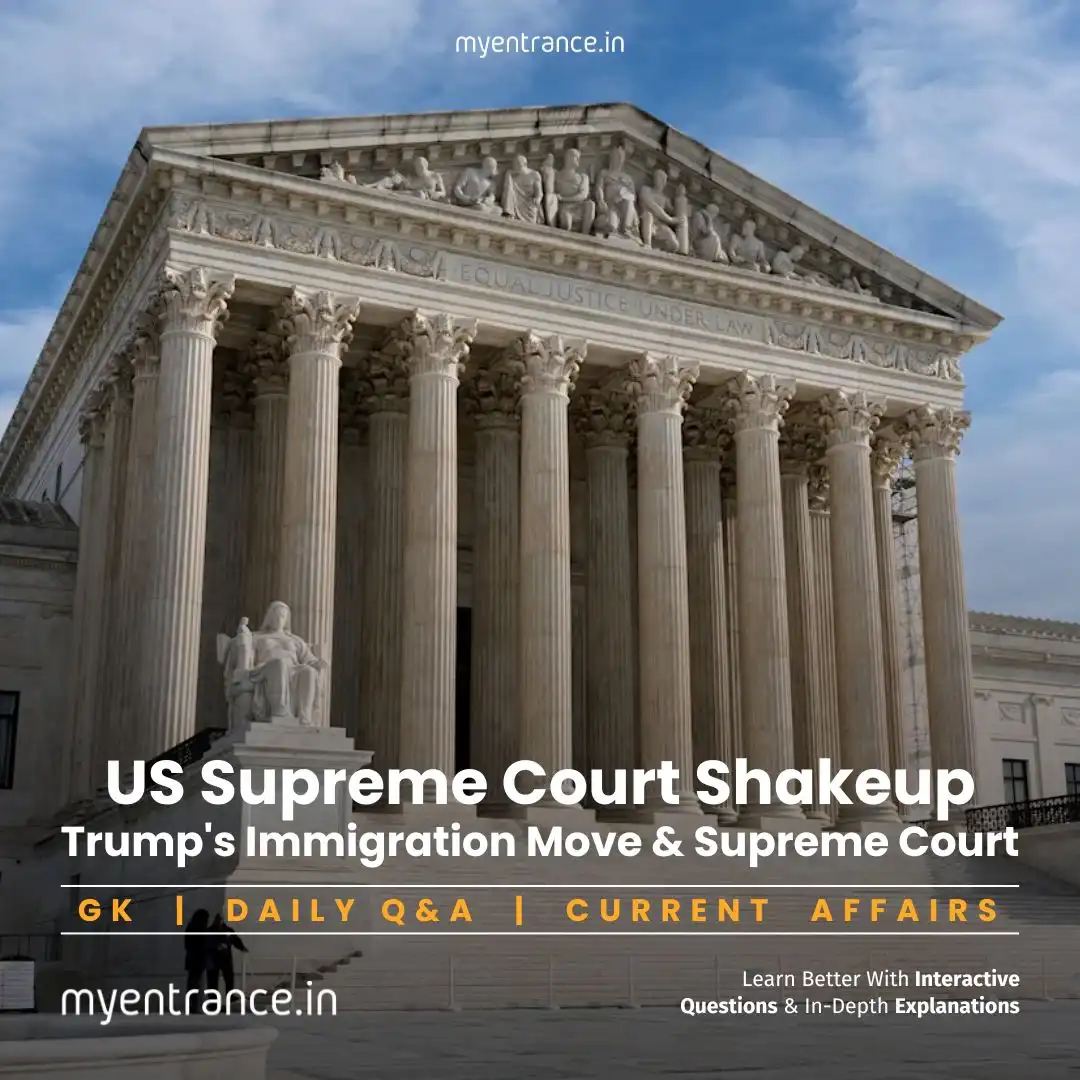
The Big Story
In a pivotal move, the US Supreme Court recently cleared obstacles to former President Donald Trump’s executive order challenging birthright citizenship. This decision fuels ongoing debates about immigration reforms and constitutional interpretations – hot topics for your current affairs preparation.
Breaking It Down
Here’s what you need to grasp:
Birthright Citizenship: Automatic US citizenship for anyone born on American soil, rooted in the 14th Amendment (called jus soli – “right of the soil”).
Trump’s Challenge: His order aimed to exclude children of undocumented immigrants/temporary visa holders from automatic citizenship.
Court’s Role: The 6-3 ruling limited federal judges’ power to issue nationwide injunctions, allowing Trump’s policy to advance case-by-case.
Constitutional Clash: Critics argue this violates the 14th Amendment’s guarantee: “All persons born… in the United States… are citizens.”
Indian Impact: Over 500,000 Indian-Americans could face family separations or visa complications if birthright citizenship ends.
Why It Matters Globally
This isn’t just a US issue. Nations like Canada/Australia follow jus soli, while others like India use jus sanguinis (citizenship by parental descent). Policy shifts in developed countries ripple through global migration patterns – including opportunities for Indian designers studying abroad.
Historical Context
The 14th Amendment (1868) originally secured rights for formerly enslaved people. It’s faced challenges before – like the 1898 Wong Kim Ark case where SCOTUS upheld birthright citizenship for children of Chinese immigrants. Yet, Trump’s order tests this precedent by reinterpreting “subject to the jurisdiction thereof.”
Sample Questions & Answers:
Q: What is ‘jus soli’?
A: The principle granting citizenship to anyone born in a country’s territory (e.g., USA/Canada).
Q: Which amendment guarantees US birthright citizenship?
A: The 14th Amendment (1868).
Q: How did SCOTUS limit judicial powers in Trump’s case?
A: It restricted federal judges from issuing nationwide injunctions, allowing case-specific rulings only.
Q: What was the landmark case upholding birthright citizenship?
A: United States v. Wong Kim Ark (1898).
Q: How might ending birthright citizenship affect Indian-Americans?
A: Families could face separations, visa uncertainties, or deportation risks.
Most Predicted Questions
Comprehensive study materials, Expert-guided tips & tricks, Mock tests and instant results.
Start your SSC, NIFT, NID, FDDI, PSC journey today with MyEntrance, your ultimate online coaching platform.



